Understanding Hybrid Solar Systems
Hybrid solar systems combine the best of both worlds – the benefits of off-grid and on-grid solar systems. In contrast to conventional on-grid solar configurations, which solely rely on the power grid, hybrid systems offer a flexible and self-sufficient method of generating electricity. Through the seamless integration of grid connectivity, battery storage, and solar panels, they enable consumers to optimize their energy use.
Off-Grid vs. On-Grid Solar Systems
Let’s compare off-grid and on-grid solar installations quickly before venturing further into the world of hybrid solar systems. Both systems use solar panels to capture the energy of the sun, but how they do so is where they fundamentally diverge.
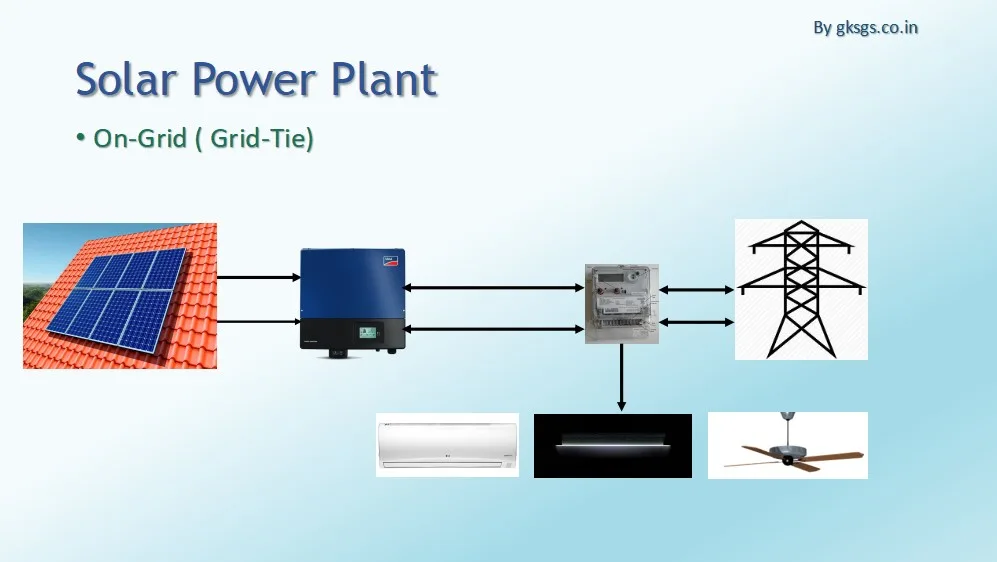
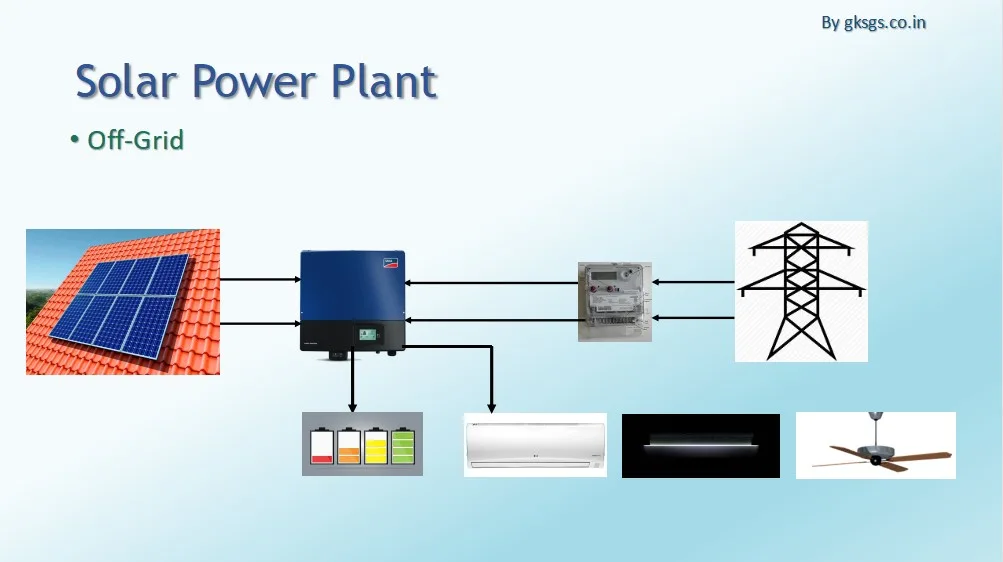
| Off-Grid Solar Systems | On-Grid Solar Systems |
| As the name implies, off-grid solar systems run separately from the power grid. They store surplus energy in batteries, allowing users to access power even in remote locations or during power outages. Off-grid systems are ideal for cabins, camper vans, boats, and any location beyond the reach of the traditional power grid. | On-grid solar systems, on the other hand, are linked to the nearby electrical grid. They feed excess energy generated by solar panels back into the grid, earning credits through net metering. This allows users to offset their electricity bills and contribute clean energy to the community. |
| As the name implies, off-grid solar systems run separately from the power grid. | On-grid solar systems, on the other hand, are linked to the nearby electrical grid. |
| They store surplus energy in batteries, allowing users to access power even in remote locations or during power outages. | They feed excess energy generated by solar panels back into the grid, earning credits through net metering. |
| Off-grid systems are ideal for cabins, camper vans, boats, and any location beyond the reach of the traditional power grid. | This allows users to offset their electricity bills and contribute clean energy to the community. |
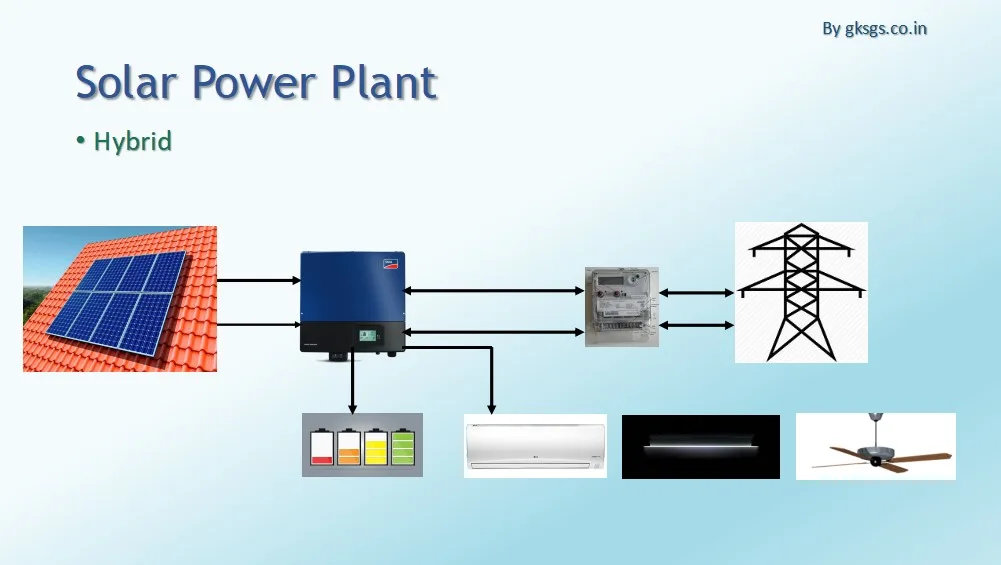
Hybrid solar systems combine the advantages of both off-grid and on-grid set-ups, making them an attractive and versatile option for consumers seeking energy independence and grid connectivity. Here’s how hybrid systems work:
Energy Independence: Like off-grid systems, hybrid set-ups store excess solar energy in batteries for later use. This ensures a constant power supply, even during grid outages or during peak demand times.
Grid Connectivity: Hybrid systems are also connected to the electricity grid, which provides an added layer of security. In times of low solar production or high energy demands, users can draw electricity from the grid.
Optimized Energy Management: Hybrid systems are designed to intelligently manage energy sources. They automatically alternate between grid electricity, battery storage, and solar power according to the energy needs and availability of the moment.
Economic Benefits: With hybrid systems, users can benefit from net metering, allowing them to sell excess electricity back to the grid and potentially earn credits or reduce their electricity bills.
Environmental Impact: Hybrid solar systems contribute to a cleaner environment by reducing reliance on fossil fuels and promoting the use of renewable solar energy.
Advantages of Hybrid Solar Systems
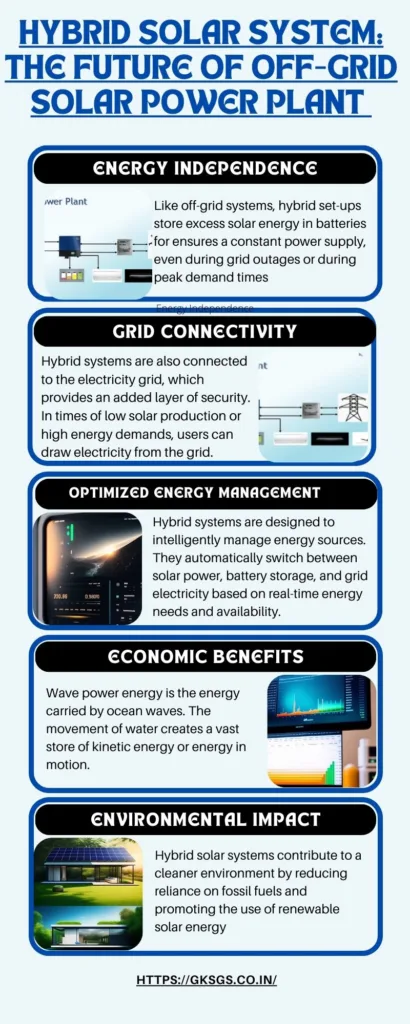
The Future of Off-Grid Power Solutions.
There are several benefits that hybrid solar systems have over conventional off-grid and on-grid configurations. Here are some of these benefits that we should thoroughly research:
| Continuous Power Supply | One of the most significant advantages of hybrid systems is their ability to provide uninterrupted power supply. Even in areas prone to frequent power outages or where grid connectivity is unreliable, hybrid set-ups ensure a steady flow of electricity. |
| Energy Storage | Hybrid systems utilize advanced battery technologies, such as lithium-ion batteries, which are known for their high efficiency and long lifespan. These batteries are designed to store extra energy produced on sunny days for usage at night or during gloomy spells. |
| Grid Backup | With grid connectivity, hybrid solar systems offer the safety net of a backup power source. In cases of unexpected spikes in energy demand or extended periods of low solar generation, users can draw electricity from the grid, ensuring a consistent power supply. |
| Cost Savings | Hybrid systems help reduce electricity bills by using stored solar energy during peak demand hours when utility rates are typically higher. In addition, net metering enables users to receive credits for the excess energy they feed back into the grid. |
| Environmentally Friendly | By relying on solar energy, hybrid systems significantly reduce greenhouse gas emissions and dependence on non-renewable energy sources. This environmentally conscious approach helps combat climate change and fosters a sustainable future. |
| Flexibility and Scalability | Hybrid systems offer flexibility in design and are easily scalable to meet the varying energy needs of different users. Hybrid setups can be customized to meet a variety of energy needs, whether they are for residential, commercial, or industrial use. |
Selection of Right Hybrid Solar System
Carefully weigh the following factors when selecting the best hybrid solar system for your needs. Here are some essential viewpoints to keep in mind:
| Energy Consumption | Begin by assessing your energy consumption patterns. Analyze your daily electricity usage and identify your peak energy demands. This evaluation will help determine the size and capacity of the solar panels and batteries needed for your hybrid system. |
| Solar Panel Efficiency | Invest in high-efficiency solar panels to maximize energy generation from limited roof space or available land. Solar panels with better efficiency can harvest more sunlight and convert it into usable electricity. |
| Battery Storage Capacity | Choose reliable and durable battery storage solutions with sufficient capacity to store excess solar energy. Lithium-ion batteries are a popular choice due to their longer lifespan and higher efficiency compared to lead-acid batteries. |
| Inverter Specifications | Choose an excellent inverter that effectively transforms solar-generated direct current (DC) into alternating current (AC), which is used in home appliances. |
| Professional Installation | To ensure optimal performance and safety, hire a certified and experienced solar installation professional. When your hybrid system is installed correctly, it will function effectively and safely while abiding by rules and industry norms. |
| Warranty and Support | Look for hybrid solar systems with comprehensive warranties on both solar panels and batteries. You can have piece of mind knowing that the system will operate dependably for a longer amount of time if it has a dependable warranty. |
With the growing need for sustainable energy sources, hybrid solar systems represent the future of off-grid power options. Hybrid systems provide energy independence, grid access, and considerable cost savings by fusing the finest aspects of off-grid and on-grid configurations. Hybrid solar systems are set to fundamentally alter how we capture and use solar energy as a result of ongoing advances in solar technology and rising environmental consciousness.
You may like:1. Supercharge Your Electric Vehicle(EV) : Embrace the Solar-Powered Wheel Revolution 2. Understanding the Different Categories of Solar Power Plants 3. Exploring the Best Solar Panel Choice for Your Home or Factory
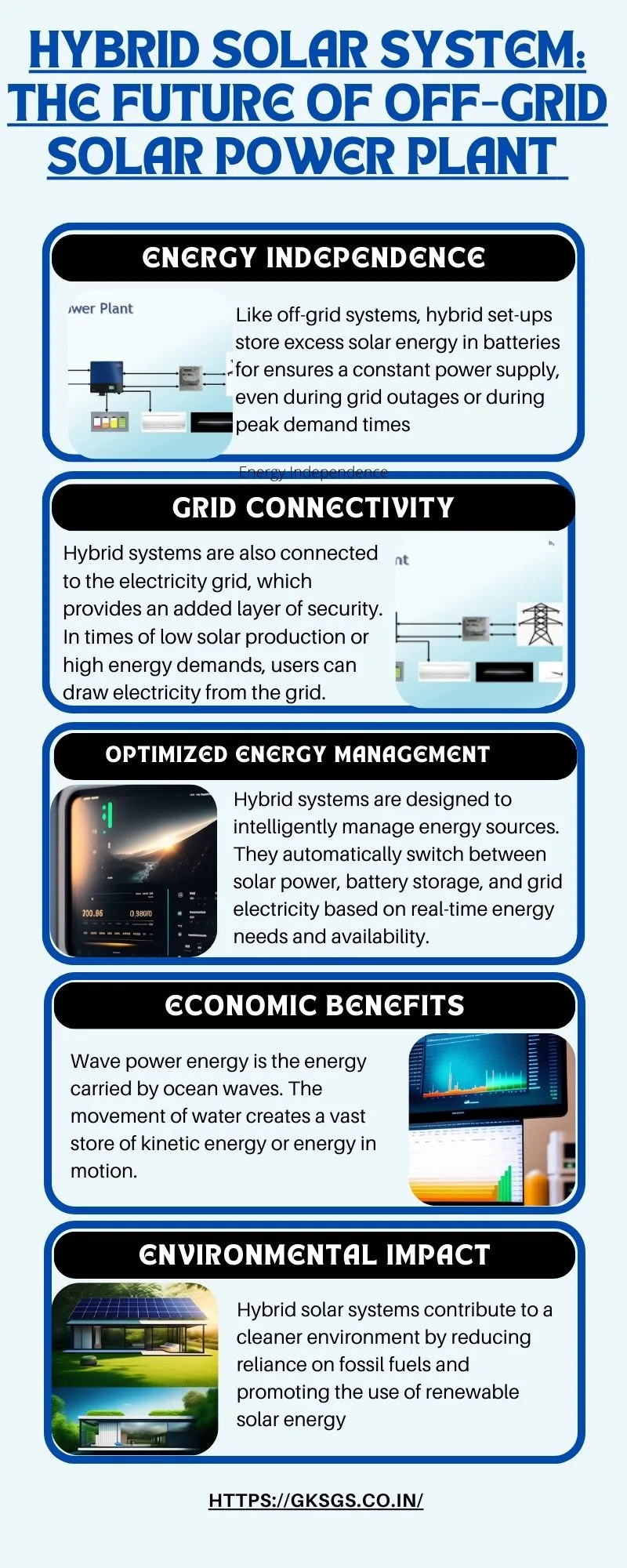
Its worth